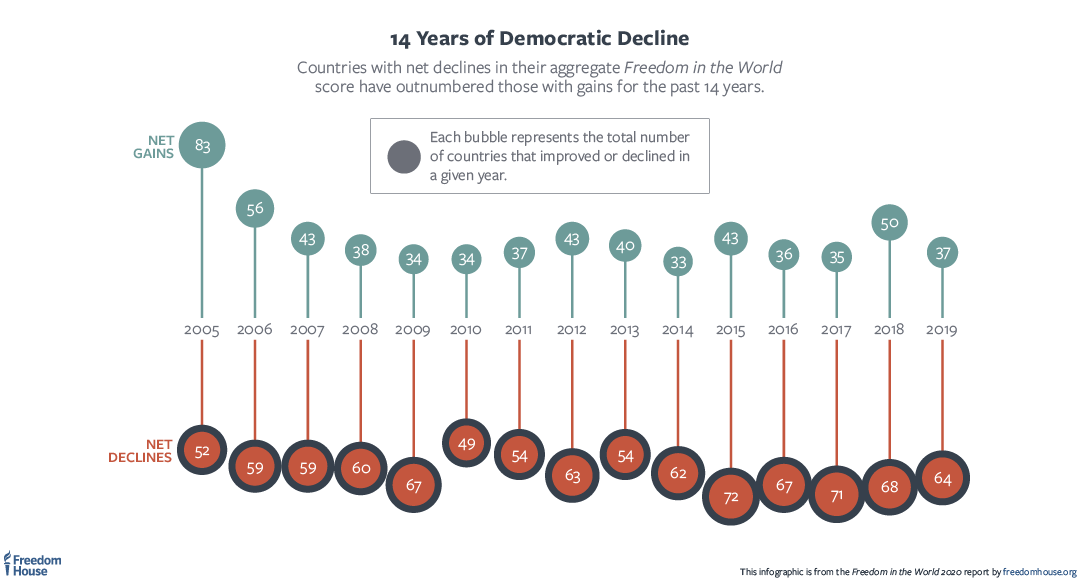A beautifully delicate flower I discovered in our garden on Saturday.
Quote of the Day
”The problem with eating Italian food is that five or six days later you’re hungry again.”
- George Miller
Musical alternative to the morning’s radio news
The Wailin’ Jennys | Light of a Clear Blue Morning
Amazing group.
Long Read of the Day
The Darkness
A sombre essay By Noah Smith.
There is plenty of darkness in the world even at the best of times. Wars, ethnic cleansing, rights violations, suppression of speech and religion…these things are always, or almost always, happening in some part of the globe. No leader and no country is spotless. And yet observers of comparative government and human rights are able to clearly identify times when respect for the rights and liberties of human beings begins to gutter and wane.
We are now in one of those times. The news headlines from around the world give us a continual stream of dark portents. Concentration camps and forced mass sterilization of minorities in China. Millions rendered stateless by a new law in India amid a retreat of secularism. A coup attempt and election denial as a normalized political strategy in America. Rising authoritarianism in Turkey, in Hungary, in Brazil, in the Philippines, in Israel. Protesters massacred in Myanmar, massacred in Iran, suppressed in Belarus, suppressed in Hong Kong. Mass surveillance everywhere. Internet shutdowns. “Anti-terrorism” laws.
And the bottom line?
If electoral democracy in America relies on Democrats never losing an election, it’s doomed. If the GOP doesn’t change its tune and agree that the rules by which Americans choose their leaders are legitimate, the next decade could be one of rolling constitutional crises…or worse.
Welcome to DarkSide: the inexorable rise of ransomware
Yesterday’s Observer column:
Public discourse about cybercrime and its practitioners is way behind the curve. As Ross Anderson and his colleagues have shown, criminals are rational actors, not lone hackers with poor hygiene and a penchant for pizza. They see what they do as a low-risk activity with very high profit margins. And they operate in a networked world in which even large and wealthy companies are still failing to take computer security seriously. The significance of the Colonial hack is its confirmation of cybercrime as a major new industry…
RaaS:Ransomware-as-a-service
Further to my column (see previous item) here are some additional points from a Financial Times report by Hannah Murphy and another article by Misha Glenny in Saturday’s edition of the paper.
-
Ransomware attacks up by over 60% (to 305m) during pandemic, according to data from SonicWall. (Murphy)
-
In 2020 there was an increase of 485% in registered attacks over 2019 , according to Bitdefender, a cybersecurity firm (Glenny)
-
Over 25% of victims pay up, according to Crowdstrike.
-
About “two dozen” gangs dominate the market, earning at least $18B in ransoms in 2020 according to cybersecurity firm Emisoft, with average payment of $150,000
-
After tracking one criminal group, the Dutch telecoms company KPN found that it demanded an average of $260,000.
-
Non-techie criminals are now joining the party as RAAS has emerged — where groups rent out their software on the dark web to “affiliates” and take a cut of their earnings
-
DarkSide, the RAAS outfit behind the Colonial attack runs such an affiliate programme, according to cybersecurity firm FireEye, which means that some other group may have participated in the attack.
-
It’s believed that a group of tech and cyber companies, as well as the FBI, thwarted the Colonial attackers by shutting down US-based servers the hackers were using to store data before then sending it on to Russia.
-
On May 4, Toyota Sec, a subsidiary of the Japanese giant that sells point-of-sale systems for retailers, was hit by another DarkSide attack.
Australia Beat COVID. Why Couldn’t The U.S.?
by Nicolas Berggruen
To date, Australia has lost just 910 lives to the coronavirus, compared to 597,000 lives and counting in the U.S. Since both nations are rooted in the same individualist Anglo-Saxon culture and have a similar form of democratic federal government, one wonders why they diverged so sharply in coping with COVID. What is the underlying difference between these democracies that led one country to effectively save its citizens while the other erratically muddled through at such a high human cost?
From the very beginning, Australia’s response was speedy and robust: travel bans, mandatory quarantines, lockdowns and easily accessible COVID testing, including drive-through clinics. These were all largely possible because Australia seems to possess what America lacks: the trust of citizens in their government, particularly at the local level. The kind of “Live free or die” distrust of authority, polarized politicization of the pandemic and widespread resistance to sensible public health mandates that appeared in the U.S. never materialized in Australia.
So why did Australia do so well and the US do so badly? Basically, Berggruen thinks, “because Australia seems to possess what America lacks: the trust of citizens in their government, particularly at the local level.” It turns out that Australians’ trust in their government has actually increased during the pandemic. In a July 2020 poll, a remarkable 80% said they trusted the authorities.
Berggruen cites an Australian columnist, Waleed Aly, who convincingly captured the national character thus:
“Our whole history is one of reliance on the state, heightened regulation and mass compliance. So, we were the first nation to make seatbelts compulsory in cars. We’re one of extremely few to make bicycle helmets compulsory. We were early adopters of mandatory breath tests for motorists. We have extensive prohibitions on smoking in public places, including vast outdoor ones. … We’re the only English-speaking country to make voting compulsory. … I’d venture that every one of these measures, from compulsory voting to bicycle helmets, is wildly popular here. In general, we’d argue they’re common sense and regard critics of them as unreasonably ideological.”
This blog is also available as a daily email. If you think this might suit you better, why not subscribe? One email a day, Monday through Friday, delivered to your inbox at 7am UK time. It’s free, and there’s a one-click unsubscribe if you decide that your inbox is full enough already!


